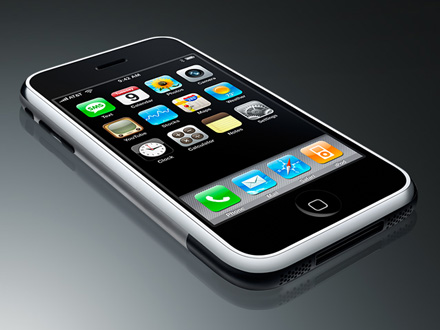For quite a while now, Walt Mossberg at The Wall Street Journal has been testing the two iPhones, one on each network of course. Keywords: each network. The phones themselves are essentially identical, except for the fact that they have different radios inside to accommodate the two carriers’ differing network technologies. Verizon is CDMA and AT&T is GSM. Most of us know the difference.
During his tests, Walt Mossberg found that the Verizon iPhone has much better voice calls, but he says there’s a trade off in data speed. We’ll get to that part. He continues to say “I’m here to say: Yes, there are some major benefits to having your iPhone on Verizon, but, as with all good things, there are also trade-offs.”
Over a period of nine days, Mossberg found that he only had three dropped calls on Verizon, but guess what, they were each with an AT&T iPhone customer who didn’t have good service. He doesn’t blame Verizon for this one. He says the calls were crystal clear, including speakerphone and blue-tooth calls. With the AT&T model, in the same areas, he had several dropped calls.
Keep in mind though that during his first day of testing, neither devices functioned as they should have. He at first had several Verizon calls that dropped out for a few seconds before recovering and terrible battery life. The AT&T iphone did the same thing following the initial setup forcing him to reboot. After he did this to each of them, he was free from the instant, often dropped calls on newly activated devices and both had great battery lives. We wonder why this happened? What do you think?
So you’re asking, what about the trade-off Mossberg spoke of? The biggest one he mentions is data speed. That’s what every smartphone user looks for, well most of them. He performed several speed tests with the two devices, primarily in the Washington area and a part of a day at Chicago’s O’Hare Airport. Keep reading, it gets good.
Mossberg found that, despite a few Verizon victories here and there, AT&T’s network averaged 46% faster at download speeds and 24% faster at upload speeds. He says, “This speed difference was noticeable while doing tasks like downloading large numbers of emails, or waiting for complicated Web pages to load. AT&T’s speeds varied more while Verizon’s were more consistent, but overall, AT&T was more satisfying at cellular data.”
We aren’t here bashing either carrier, just stating the facts from a well trusted journalist from Wall Street. What we can say that’s extremely useful to AT&T customers right now, that Verizon doesn’t offer, is surfing the web and making a voice call at the same time. However, Verizon has plans to have certain models with that capability. It still is something AT&T can say they have that Verizon doesn’t.
Verizon isn’t the best everywhere you go and neither is AT&T. In the D.C. area, Mossberg had issues with the Verizon model switching from 3G to 2G mode. It had no affect on voice quality but did slow down the data.
Mossberg says, “Bottom line: In my tests, the new Verizon version of the iPhone did much better at voice calling than the AT&T version, and offers some attractive benefits, like unlimited data and a wireless hot-spot capability. But if you really care about data speed, or travel overseas, and AT&T service is tolerable in your area, you may want to stick with AT&T.”
Now what we want to know, will the iPhone 5 be completely different or just slightly updated? What changes do you think should happen and what do you think will happen? Let us know your thoughts on this article in the comments box below.
Source: WSJ

